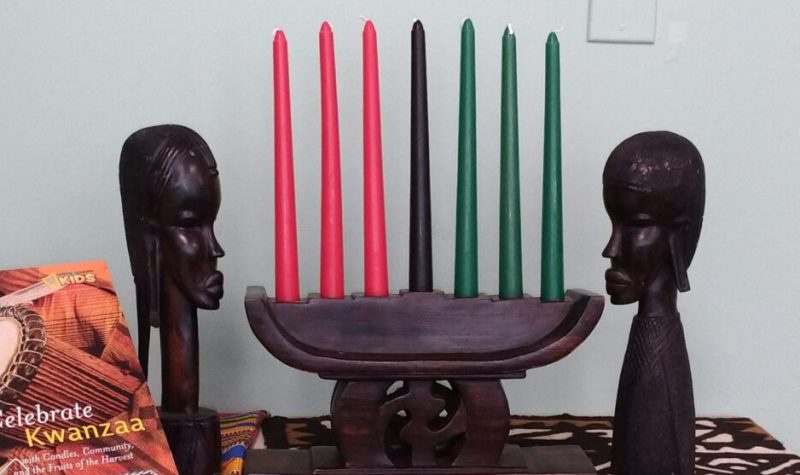The annual Kwanzaa celebration hosted by Jaku Konbit has been cancelled due to the reintroduction of capacity restrictions and a climbing COVID-19 case count.
Jaku Konbit is a local organization that's mission is to “support and improve the lives” of residents of African and Caribbean descent by partnering with other community organizations.
Last year’s Kwanzaa celebration was completely virtual, but this year Jaku Konbit was inviting community members to participate in a combination of virtual and in-person activities. They had planned a series of online information sessions, as well as an in-person event held at the Bronson Centre, for Dec. 31, featuring live performances of traditional song and dance and a communal dinner.
Ken Campbell, president of Jaku Konbit, says his organization has successfully hosted their annual Kwanzaa celebration for the past 15 years, but this year the pandemic has put a stop to parts of that plan.
“So what we had planned was an online information session for those seven days, starting on the 26th, and that's an online explanation of each of the seven days of Kwanzaa,” says Campbell. “And we… had a lot of local cultural performers. [It was] an opportunity to network and to celebrate and reaffirm the importance of the values of family, community and culture. The community celebration, because of this pandemic, and… the risks associated with the new variants, we decided that we will not go ahead with any gathering. But the online… information sessions will still continue.”
Kwanzaa is a seven-day, non-religious holiday celebrating traditional African values such as community, family and cultural pride. It dates back to 1960s America, where it was conceived during a time of human rights abuses, segregation, and civil unrest by Dr. Maulana Karenga, a Black activist from California. Karenga established the holiday as a means to unite Black communities following a series of riots in the community of Watts in Los Angeles that resulted in the deaths of 34 people, 26 of which were Black people who died at the hands of law enforcement.
Kwanzaa has since been embraced by Black Canadians as a way to celebrate African and Caribbean cultural heritage. The word itself is derived from a Swahili word meaning “first fruits,” referring to the traditional harvest season celebrated in many African cultures. It’s observed from Dec. 26 to Jan. 4, with each of the seven days representing a different value.
The seven values are Umoja (Unity), Kujichagulia (Self-determination), Ujima (Collective Work and Responsibility), Ujamaa (Cooperative Economics), Nia (Purpose), Kuumba (Creativity), and Imani (Faith). They are observed by the lighting of a Kinara, a seven-pronged candelabra, and by the display of symbols representing each of the values, such as fruits to represent abundance and corn to represent prosperity.
The week-long celebration culminates in a feast called Karamu Ya Imani, or Feast of Faith, usually celebrated on Dec. 31.
Campbell says this year’s celebration would have been exceptionally meaningful for his community, given the events of the past year.
“I think the timing is perfect,” says Campbell. “I think the energy and the feel and the pulse of the community, not only within the Black community as a whole, people are thinking of a more equitable and fair society.”
According to Campbell, Kwanzaa is a time for people of African descent to reflect on their heritage, traditions, and values, and to come together as a community. He says the first day of Kwanzaa, represented by the principle of unity, is a call for communities across the world to support one another.
“And so we wanted to talk about what has been done so far,” says Campbell. “And what did you do on your own individual level to further enhance, to further improve, to further work together, to collaborate, to support and to network with each other, and to contribute to a healthier community.”
Campbell says although the in-person gathering is cancelled, along with all of the performances lined up for the event, he hopes the community can learn something from the seven principles explained in the information sessions.
Jaku Konbit is selling Kinaras for $80 on their website to any individual, family, or organization who wishes to celebrate Kwanzaa this year.
Listen to the CHUO story below:


